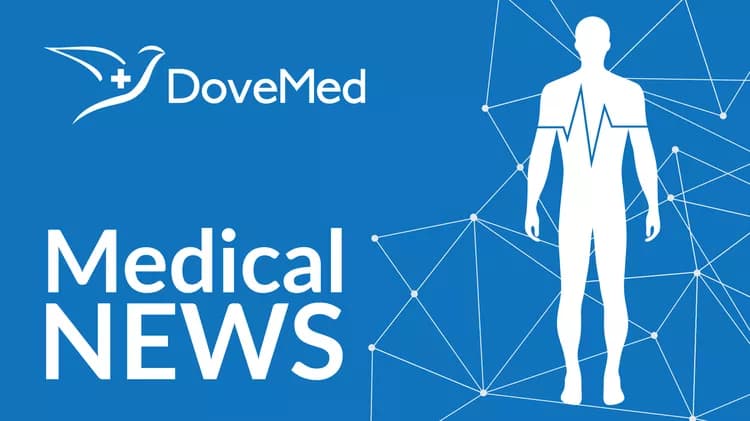
Immune Cells Have A Metabolic Backup Plan For Accessing Their Anti-Cancer Playbook
GRAND RAPIDS, Mich. (Aug. 22, 2024) — Immune cells use two different routes to produce acetyl-CoA, an essential metabolite required to fight infection and cancer, reports a study led by Van Andel Institute scientists.
The findings, published in the Journal of Experimental Medicine, could help improve immunotherapies by revealing how diet can boost immune cell function.
“Like any good system, immune cells have a plan A and a plan B,” said Russell Jones, Ph.D., the study’s corresponding author and chair of VAI’s Department of Metabolism and Nutritional Programming. “We’ve pinpointed how these cells use a two-pronged approach to ensure they have enough acetyl-CoA to do their jobs and keep us healthy. Importantly, we gained new insights that may inform tailored dietary strategies for augmenting existing cancer treatments.”
Cells synthesize acetyl-CoA using nutrients, such as acetate, derived from food. When a threat is detected, cells add acetyl-CoA to certain proteins, which then unlock access to the genetic instructions required to fight disease and infection. Insufficient acetyl-CoA derails the immune system’s ability to protect the body.
Until now, however, it was unclear exactly how immune cells maintained their acetyl-CoA reserves. In their new study, Jones and his colleagues identified two routes for acetyl-CoA production — a main route called ACLY and a backup route called ACSS2. Cells prefer ACLY but, in the event of problems, ACSS2 picks up the slack to ensure a continual supply of acetyl-CoA.
Although this type of “metabolic flexibility” has been observed in cancer cells, this is the first time immune cells have been shown to have similar abilities.
The findings also underscore the close relationship between metabolism and epigenetics, which are processes that influence how the instructions in DNA are used without changing the DNA sequence itself. Epigenetic errors are well-known contributors to cancer and important targets for potential new treatments.
“We identified specific metabolic hubs, which include ACLY and ACSS2, that control cell function through epigenetics,” said McLane Watson, Ph.D., the study’s co-first author and a postdoctoral fellow in Jones’ lab. “This is exciting because these hubs could one day inform new ways to improve cancer immunotherapies by using metabolism to fine-tune epigenetics.”
Watson and Irem Kaymak, Ph.D., are co-first authors of the study. Other authors include Brandon M. Oswald, Benjamin Johnson, Ph.D., Lisa M. DeCamp, Batsirai M. Mabvakure, Ph.D., Katarzyna M. Luda, Ph.D., Eric H. Ma., Ph.D., Kin Lau, Ph.D., Zhen Fu, Ph.D., Brejnev Muhire, Ph.D., Susan M. Kitchen-Goosen, Alexandra Vander Ark, M.S., Michael S. Dahabieh, Ph.D., Matthew Vos, Hui Shen, Ph.D., Connie M. Krawczyk, Ph.D., Kelsey S. Williams, Ph.D., and Ryan D. Sheldon, Ph.D., of VAI; Shixin Ma, Ph.D., and Susan M. Kaech, Ph.D., of Salk Institute for Biological Sciences; Bozena Samborska, M.Sc., of McGill University; Zi Peng Fan, Ph.D., Thomas P. Roddy, Ph.D., Gillian A. Kingsbury, Ph.D., and Cristovão M. Sousa, Ph.D., of Agios Pharmaceuticals; and Dominic G. Roy, Ph.D., of University of Montreal.
Research reported in this publication was supported by Van Andel Institute; the National Cancer Institute of the National Institutes of Health under award no. T32CA251066 (Watson; PI: P. Jones); the Damon Runyon Cancer Research Foundation under award no. DRG-#2495-23 (Watson); and the National Institute of Allergy and Infectious Diseases of the National Institutes of Health under award no. R01AI165722 (R. Jones).
Roy is supported by the Fonds de Recherche due Québec – Santé (FRQS) and the Cancer Research Society under award no. 192049. Krawczyk is supported by the National Institute of Allergy and Infectious Diseases under award no. R21AI153997. Ma is supported by a Cancer Research Institute Fellowship and a Salk Pioneer Fund Postdoctoral Scholar Award. Kaech is supported by the National Institute of Allergy and Infectious Disease of the National Institutes of Health under award nos. R01AI066232 and R21AI151986. Jones also is supported by the Paul G. Allen Frontiers Group Distinguished Investigator Program and the Chan Zuckerberg Initiative DAF, an advised fund of the Silicon Valley Community Foundation.
The content is solely the responsibility of the authors and does not necessarily represent the official views of the National Institutes of Health or other funders.
###
ABOUT VAN ANDEL INSTITUTE
Van Andel Institute (VAI) is committed to improving the health and enhancing the lives of current and future generations through cutting edge biomedical research and innovative educational offerings. Established in Grand Rapids, Michigan, in 1996 by the Van Andel family, VAI is now home to more than 500 scientists, educators and support staff, who work with a growing number of national and international collaborators to foster discovery. The Institute’s scientists study the origins of cancer, Parkinson’s and other diseases and translate their findings into breakthrough prevention and treatment strategies. Our educators develop inquiry-based approaches for K–12 education to help students and teachers prepare the next generation of problem-solvers, while our Graduate School offers a rigorous, research-intensive Ph.D. program in molecular and cellular biology. Learn more at vai.org.
JOURNAL
Journal of Experimental Medicine
DOI
10.1084/jem.20231820
ARTICLE TITLE
ACLY and ACSS2 link nutrient-dependent chromatin accessibility to CD8 T cell effector responses
ARTICLE PUBLICATION DATE
16-Aug-2024
Related Articles
Test Your Knowledge
Asked by users
Related Centers
Related Specialties
Related Physicians
Related Procedures
Related Resources
Join DoveHubs
and connect with fellow professionals

0 Comments
Please log in to post a comment.